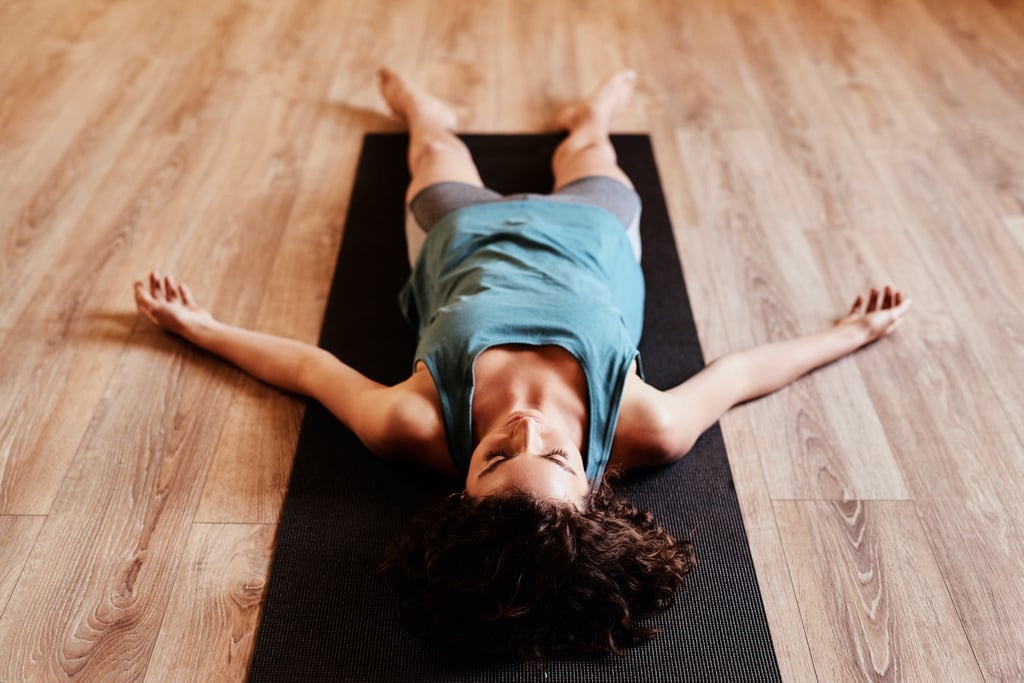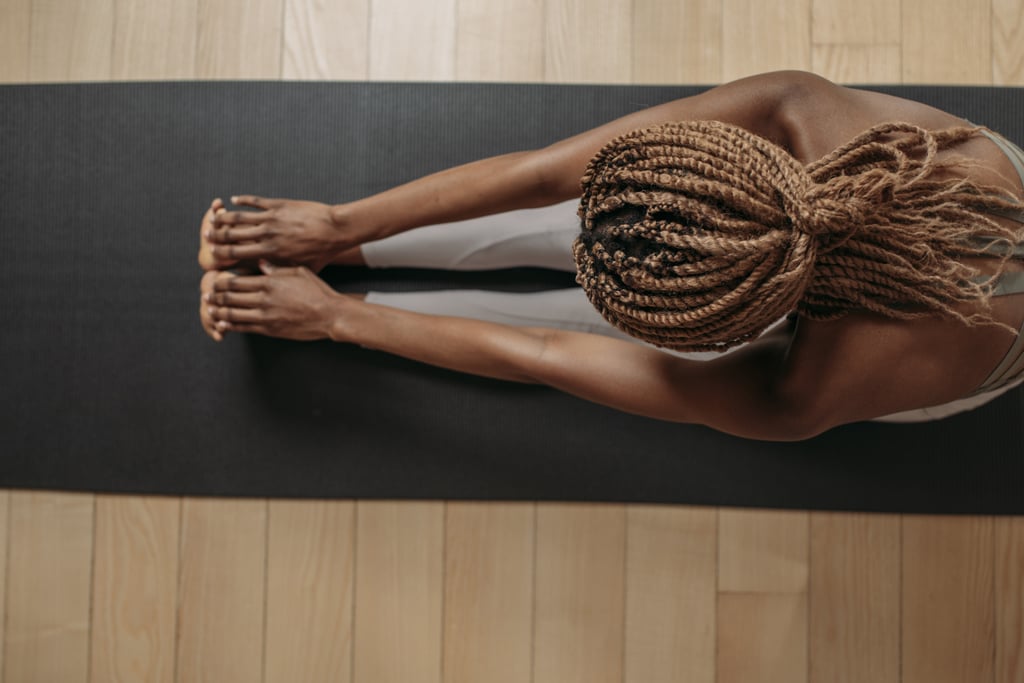Stress is inevitable, but too much stress can negatively impact your mood, relationships, sleep routine [1], and even how your body functions [2]. There are a variety of ways to manage stress, such as journalling [3], hanging out with your friends, going on walks, and working with a licensed mental-health professional.
If you're trying to figure out how to best manage your stress, we reached out to experts and asked them to share their top tips. It may take some trial and error to find which techniques work best for you, but once you've found some that you like, you're going to feel more relaxed. Check out some therapist-approved tips ahead.

Try Progressive Muscle Relaxation

If you're feeling stressed, Jessie Bohnenkamp, LPC, NCC, founder of Plum Counselling and Wellness [5], recommends trying a technique called progressive muscle relaxation. "Often, when we're feeling stressed, we tense up parts of our body which then sends signals to our brain that we're unsafe and need to be on guard for danger," Bohnenkamp told POPSUGAR. To counteract this, Bohnenkamp said, "Lie on your back, or in a comfortable position, and starting with your toes, focus on fully relaxing each muscle group, or body part, moving slowly up your body as you let all of the tension drain away."
Take Deep Breaths and Go on Walks

If you're feeling stressed, try to get out for a walk. It doesn't have to be long but it can help you clear your mind. In addition to walking, Nekeshia Hammond [6], PsyD, told POPSUGAR, "Focus on deep breathing by reminding yourself throughout the day to take slow, deep breaths." According to Dr. Hammond, taking deep breaths can restore and revitalise your mood and energy levels. She also recommends listening to calming music, meditating, and doing fun activities.
Reach Out to Your People

"Reach out to those that you can be vulnerable with and let your guard down," Louis Laves-Webb [7], LCSW, LPC-S, told POPSUGAR. Laves-Webb said to lean in on your relationships and share you struggles, insecurities, and anxieties with your loved ones.
Do a Body Scan

Stress can often show up in various ways throughout your body, which is why Sandra Thébaud [8], PhD, a stress management specialist, said to do a body scan whenever you feel stressed and need to relax. "Begin with your head and move down to your feet. If you notice any tension, exhale and release the tension. Consciously releasing tension from your body can give you an immediate feeling of relaxation and rejuvenation," Dr. Thébaud told POPSUGAR.
Additionally, she recommends focusing on the things you're grateful for because "Gratitude gives us perspective and keeps us from thinking that everything in our life has gone wrong."
Take a Break to Feel Relaxed and Rejuvenated

"If you feel that your day is taking the wrong turn or your stress levels are reaching their top levels, take a break for 10 to 15 minutes," Dr. Holland-Kornegay suggests. She recommends finding a place where you feel relaxed, such as your favourite park, and to do something that brings you joy at that place. "Sing, dance, meditate, read, have a juice, eat something you really like."
Stretch Daily

Stretching isn't just reserved for runners and people who lift weights. Dr. Tasha Holland-Kornegay, PhD, LPC, founder of Wellness IRL, a platform to reduce healthcare provider burnout [9], recommends stretching daily to help relieve stress and relax.
"While it may seem like a lot of work, you can simply stand in a doorway and try to stretch your arms apart, trying to reach the upper sides of the doorframe," she told POPSUGAR. Hold for 90 seconds and then release. "These simple exercises will entice the nervous system and boost your energy," Dr. Holland-Kornegay said.
Exercise

"Exercise reduces levels of the body's stress hormones such as adrenaline and cortisol. It also stimulates the production of endorphins — chemicals in the brain that act as the body's natural painkillers and mood regulators," Erica Rojas, PhD, founder of Broadway Psychological Associates [10], told POPSUGAR.
Talk to Yourself About Yourself

It may sound strange to have a conversation with yourself but hear us out. "Third-person self-talk can be used across the board as you're anticipating a stressful event, as you're feeling anxiety in the moment, or when you're dealing with something that caused stress and anxiety in the past, like rejection or failure," Jason Moser [11], PhD, assistant professor of psychology and director of Michigan State University's clinical psychophysiology lab, told POPSUGAR.
To self-talk, all you have to do is talk yourself about the stressful event in the third-person, Dr. Moser explained. For example, you could ask yourself a series of questions. "When you're using your own name, the brain switches to another mode as if you're talking to someone else. In a nutshell, what happens is that you're creating a psychological distance between you and the issue you're facing."
Meditate

You don't have to meditate for hours a day to reap the benefits of meditation. "Meditation is an incredible tool to promote overall mental and physical wellness," Dr. Rojas said. "Meditation works to improve the brain's plasticity by A) strengthening synapses to change maladaptive thought patterns (aka pesky negative thoughts), B) increasing alertness, C) improving attention and concentration," Dr. Rojas explained.
If you're someone who finds "being in the present" to be a challenge, Dr. Moser said to try to meditate for 15 minutes. "The nice thing about meditation is that, much like self-talk, it's flexible and there are so many online resources and apps to guide you," he said. "If you can just sit still for 15 minutes a few times a week — uninterrupted and paying attention to your breath – it can be helpful."